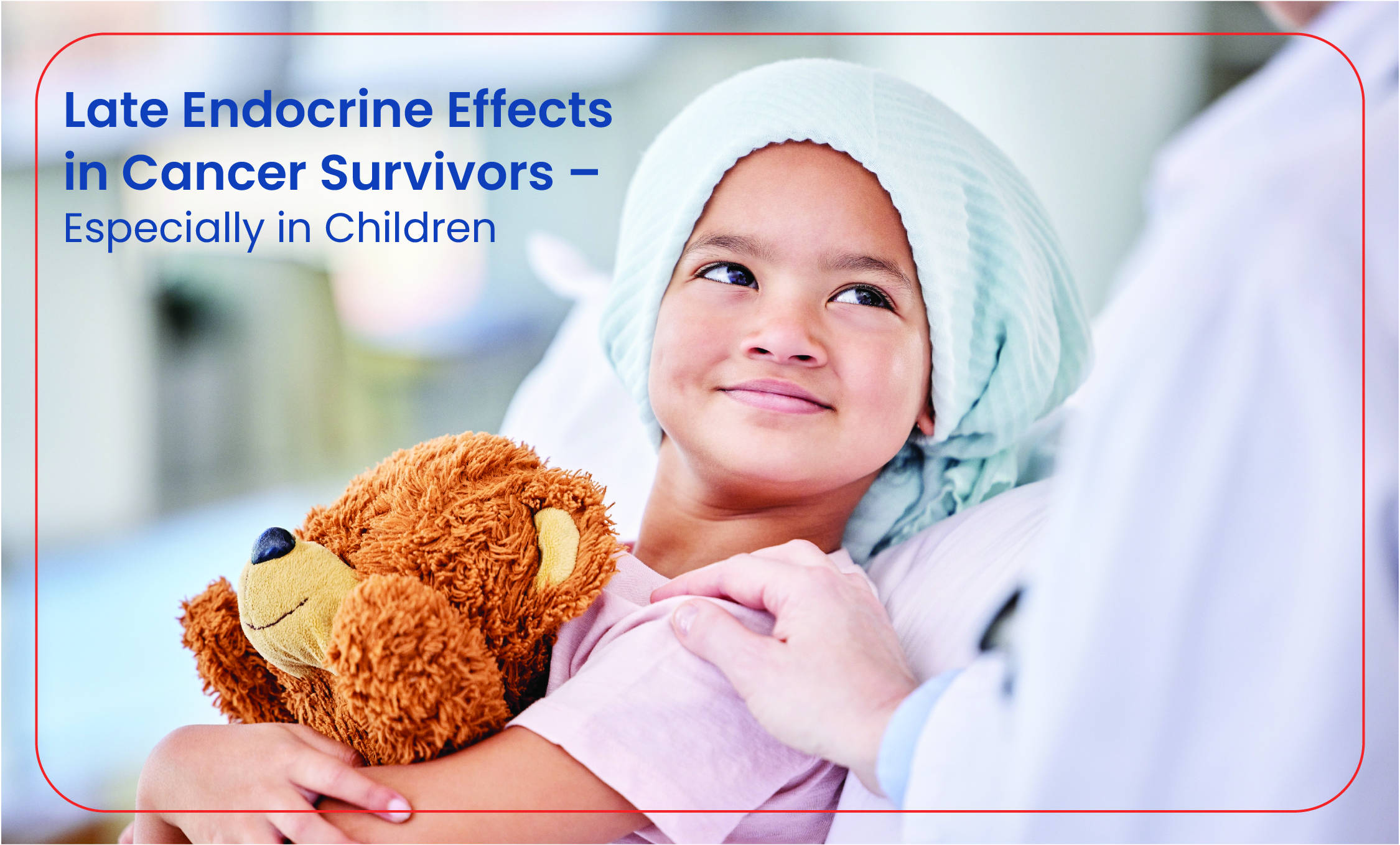
Cancer is a tough journey—not just for patients but also for their families. Thanks to medical advances, many children now survive cancer and grow up to live full, active lives. However, survival is not the end of the story. For many young cancer survivors, the long-term effects of treatment continue to impact their health. One major area affected is the endocrine system, which controls hormones in the body. These effects are known as late endocrine effects, and understanding them is essential for managing long-term health.
Before diving into late effects, let’s understand what the endocrine system does. This system is made up of glands that produce hormones—chemical messengers that control many body functions like:
Key glands include the pituitary, thyroid, adrenal glands, pancreas, ovaries, and testes.
When a child undergoes cancer treatment, especially treatments like radiation or chemotherapy, these glands can be damaged, leading to hormonal imbalances that show up months or even years later.
Late endocrine effects refer to hormone-related problems that arise after cancer treatment. They are called "late" because they don’t show up immediately—they often appear years after the treatment ends.
These issues are common in survivors of childhood cancers such as:
Treatments like cranial radiation, total body irradiation, chemotherapy, and surgery near hormone-producing organs can all contribute to these effects.
Signs include:
Early treatment with GH therapy can help if diagnosed in time.
Dr. Shreya Sharma, known as the best endocrinologist in Dehradun, often emphasizes regular height monitoring in childhood cancer survivors to detect such issues early.
Common thyroid issues include:
Routine thyroid function tests are important to catch problems early.
Cancer treatments can affect the ovaries in girls and testes in boys, leading to:
Hormone replacement therapy and fertility preservation options are available, but awareness is key.
According to Dr. Shreya Sharma, an endocrinologist specialist in Uttarakhand, discussing puberty and fertility is crucial even with younger patients and their parents to plan future care appropriately.
If the pituitary or adrenal glands are damaged due to radiation or surgery, the body may not produce enough cortisol. This can lead to:
Survivors may need lifelong cortisol replacement and careful stress management.
Some survivors develop metabolic syndrome, which includes:
Steroid use, hormone imbalances, and reduced physical activity during treatment all contribute.
This increases the risk of type 2 diabetes, heart disease, and stroke later in life.
As the best endocrinologist in Dehradun, Dr. Shreya Sharma advises early lifestyle interventions like healthy diet, exercise, and regular monitoring to reduce these risks.
Contributing factors:
Bone density scans and supplements (like calcium and Vitamin D) are recommended in such cases.
Children’s bodies are still growing and developing, making them more sensitive to cancer treatments. A treatment that might have a mild effect in adults can have a long-lasting impact in children.
Also, some late effects only show up during puberty or early adulthood, making long-term follow-up absolutely essential.
How Can These Effects Be Managed?
Survivors should be enrolled in long-term survivorship programs. These clinics monitor for:
If a hormone deficiency is found, it can usually be corrected with replacement therapy. This may include:
The treatment is tailored to each patient’s needs.
As an experienced endocrinologist specialist in Uttarakhand, Dr. Shreya Sharma emphasizes the importance of personalized care and timely hormone therapy for optimal outcomes.
Parents and young survivors should be educated about:
Hormonal imbalances can affect not just physical health but also mental and emotional well-being.
Holistic care—including mental health support—is vital for recovery and happiness.
An endocrinologist plays a central role in the long-term care of childhood cancer survivors. They help monitor and treat the late effects, improve quality of life, and guide patients through growth, puberty, and adulthood.
In Dehradun and across Uttarakhand, Dr. Shreya Sharma is recognized as a trusted name for such care. With her compassionate approach and deep expertise, she is often regarded as the best endocrinologist in Dehradun by patients and families alike.
If a child or young adult has a history of cancer and shows any of the following signs, it’s time to consult an endocrinologist:
In Dehradun and across Uttarakhand, Dr. Shreya Sharma is recognized as a trusted name for such care. With her compassionate approach and deep expertise, she is often regarded as the best endocrinologist in Dehradun by patients and families alike.
Understanding these effects can empower families to take charge of their child’s health. With expert care and a positive approach, survivors can grow up strong, healthy, and full of promise.
If you're looking for compassionate and experienced guidance in managing endocrine issues after cancer treatment, Dr. Shreya Sharma, the best endocrinologist in Dehradun, is here to help. Widely regarded as a leading endocrinologist specialist in Uttarakhand, she brings both expertise and empathy to every consultation.